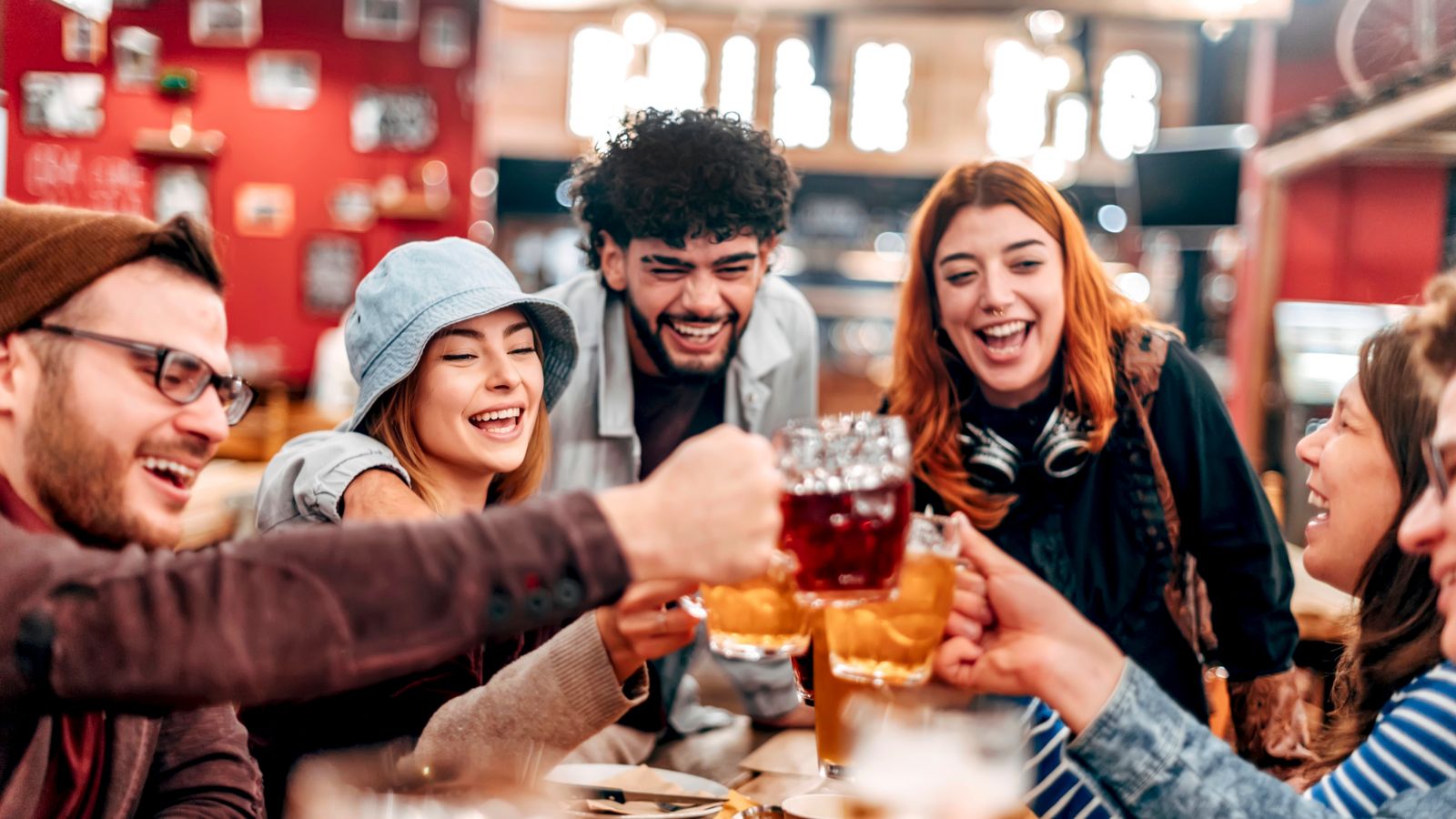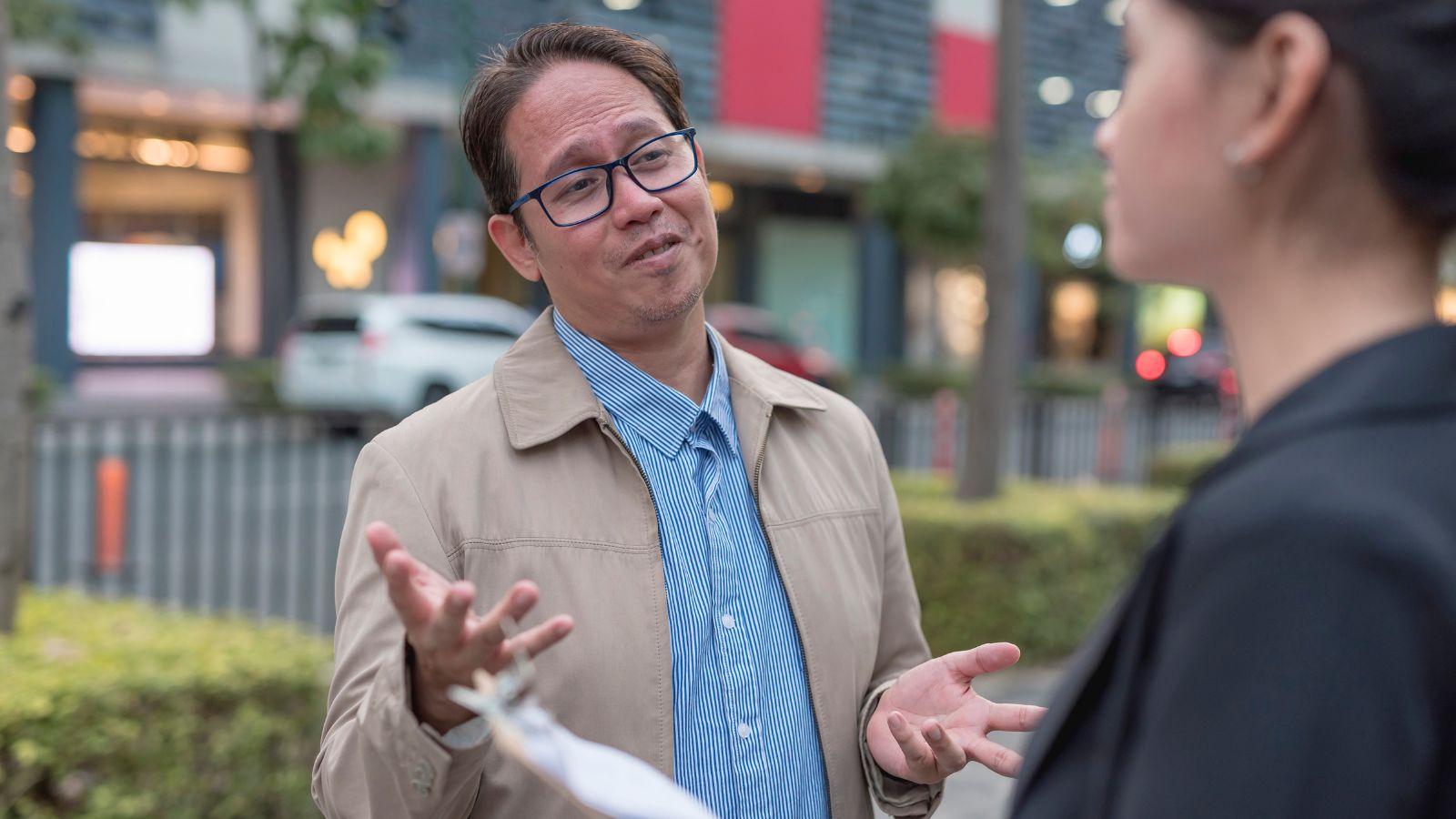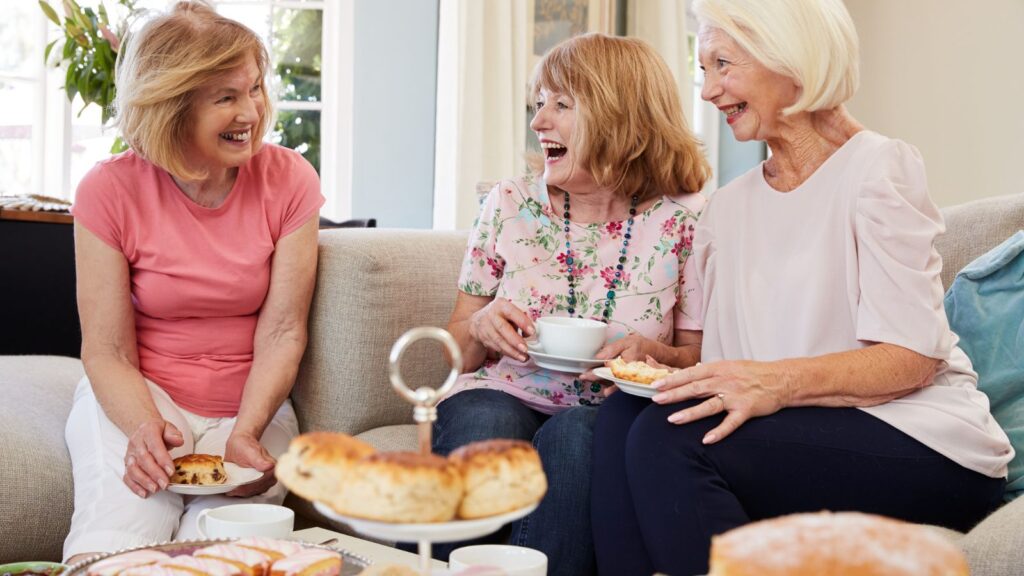The United Kingdom and the United States share a lot in common, but when it comes to manners, the British have some traditions and social norms that can leave Americans scratching their heads.
The Art of Queuing

In Britain, queuing is more than just a way to stand in line—it’s a sacred tradition. Whether waiting for a bus, in a shop, or even at the pub, Brits will instinctively form an orderly queue, and cutting in line is considered a serious social faux pas, and the British pride themselves on their queuing etiquette.
Saying “Sorry” for Everything

British people are known for their overuse of the word “sorry,” often apologising for things that aren’t their fault at all. If someone bumps into you, it’s likely you’ll both say sorry, regardless of who was at fault, and this habit of constantly apologising is less about actual remorse and more about smoothing over social interactions.
Avoiding Eye Contact

While direct eye contact is often seen as a sign of confidence and honesty in the United States, in Britain, it’s common to avoid prolonged eye contact, especially with strangers. This isn’t out of rudeness but more a reflection of a reserved culture where personal space and privacy are valued.
The Importance of Tea

Tea isn’t just a drink in the United Kingdom; it’s a ritual. Offering someone a cup of tea is a way to show hospitality, comfort, or even defuse a tense situation, and the phrase “I’ll put the kettle on” is often heard in times of joy, sorrow, or simply when guests arrive.
Understating Everything

The British are masters of understatement, and instead of saying something is “amazing” or “incredible,” they might describe it as “quite good” or “not bad.” This tendency to downplay emotions or achievements can seem puzzling to Americans, who are more accustomed to direct expressions.
The Subtlety of British Humour

Humour from the United Kingdom is famously dry, full of irony and understatement; sarcasm and self-deprecation are common, and the humour often relies on what isn’t said as much as what is. This can be bewildering to Americans, who might prefer a more straightforward style of comedy.
The Dreaded Small Talk

In Britain, small talk is an essential social skill, particularly when it comes to discussing the weather, and the British can talk about the weather for hours, using it as a safe topic to avoid more personal or controversial subjects. Americans, who might prefer to get straight to the point or dive into deeper conversations, could find this obsession with weather-related small talk baffling.
Being Indirect

Britons are often reluctant to say exactly what they mean, especially if it involves criticism or a request. Instead of asking directly, they might use phrases like “I was wondering if…” or “Do you think you could possibly…?” and this indirectness can be overly cautious to those from the U.S..
The Love of a Good Queue Joke

The British have a peculiar fondness for making jokes about queuing—especially if they find themselves in a particularly long line. These jokes are often self-deprecating, with Brits laughing at their own patience or the absurdity of the situation, while Americans might not see the humour in waiting.
The Meaning Behind “Fancy a Cuppa?”

When someone from the UK asks if you “fancy a cuppa,” they’re not just offering you tea, they’re extending a gesture of friendship and hospitality. Americans, who might see tea as just another beverage, can miss the significance of this simple offer, which is steeped in tradition.
The Complexity of the Pub Round

In Britain, when someone buys a round of drinks at the pub, it’s expected that everyone else in the group will eventually do the same. This unspoken rule can be confusing for foreigners, who might not be used to this kind of social obligation.
Not Discussing Money

Talking about money, especially how much someone earns, is considered highly impolite in Great Britain. While Americans might be more open about discussing salaries, investments, or financial success, the British prefer to keep such matters private, so asking someone about their income is a major breach of etiquette.
The Politeness of Not Saying “No”

Even when they mean it, British people avoid saying “no” directly, and instead, they might say something like “I’ll think about it” or “I’m not sure that would work.” This can lead to confusion for those from the USA, who might take these statements at face value.
The Obsession with Appearances

In Britain, appearances matter a great deal, but not in the way Americans might think. It’s less about looking glamorous and more about appearing well-mannered and respectable, which means dressing appropriately for the occasion, speaking politely, and maintaining a calm demeanour.
The Unspoken Rules of Conversation

There are many unspoken rules in UK conversation, such as not asking too many personal questions or avoiding certain topics like politics or religion, especially with people you don’t know well. This cautious approach to conversation helps avoid conflicts and maintains social harmony.
The Preference for Understatement Over Exaggeration

If you’re in the United Kingdom, exaggeration is often viewed with suspicion, and people tend to be wary of anyone who seems too boastful. Instead, the British prefer understatement, where achievements and compliments are downplayed, while Americans use hyperbole as a form of enthusiasm.
The Reserved Nature of Compliments

And finally, compliments in Great Britain are often given sparingly and subtly, while those from the U.S. might be used to freely giving and receiving praise. The British are more reserved, and a compliment might be phrased in a way that seems almost like a casual remark.







